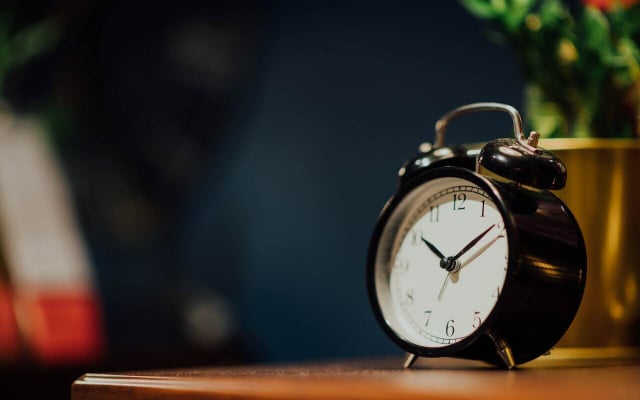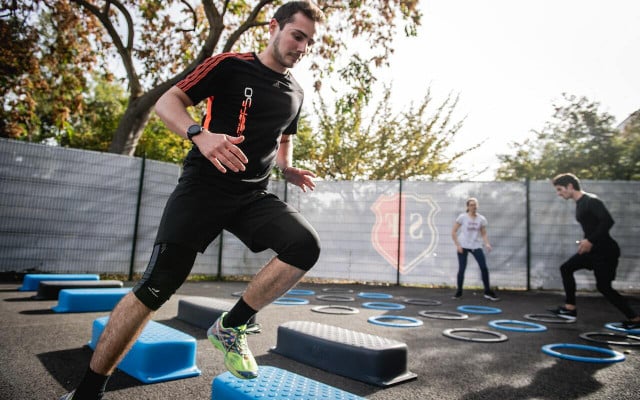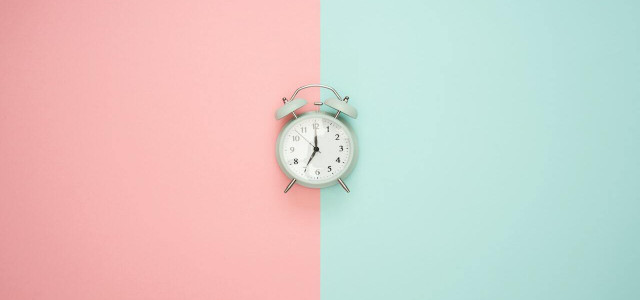Have you ever heard the term body clock and not fully understood what it meant? Learn more about biological rhythms and how to regulate them here.
Body clock is simply another term for circadian rhythm, which is the 24 hour internal clock that regulates several body systems. The most noticeable of which is the sleep/wake cycle, however your body clock is also responsible for regulating body temperature, hormone changes, and plays a role when it comes to eating and digestion.
There are many factors that can affect your body clock, though most relate to light. According to the CDC (Centers for Disease Control and Prevention), the body clock is most sensitive to light 2 hours before your regular bedtime, during the night, and up to 1 hour after you wake up. Jet lag, late-night shifts, and pulling all-nighters, can also contribute to throwing your body clock out of balance.
Is My Body Clock Out of Balance?

When your body clock is disrupted, there are several ways in which your body will react:
- Insomnia: when your sleep/wake cycle is out of balance, you may find trouble sleeping falling asleep and staying asleep throughout the night. Sleep quality and duration are often affected.
- Daytime Fatigue: if you have difficulty sleeping during the night, the risk of extreme daytime fatigue ( hypersomnia) increases. This puts you at risk, as you may find it easy to fall asleep anywhere, even while at work or during your commute.
- Weight Gain: this goes hand and hand with poor sleep quality because your body releases a hormone called ghrelin when the amount of sleep has been insufficient. This hormone is known to increase appetite, and your body might crave sugary caffeinated food and drinks to deal with the lack of sleep.
- Decreased Productivity: a lack of sleep affects everyone in different ways, however, sleep cycle changes can result in cognitive and behavioral issues. Difficulty focusing or paying attention, forgetfulness, and even motor skills can be affected by lack of sleep.
- Poor Mental Health: when your body clock is out of balance, your hormones aren’t being regulated. This can result in mood changes, and an increased risk of anxiety and/or depression.
If you are experiencing any of the above, and you aren’t sure what the root cause is, you might need to look at regulating your body clock. You can use our tips below to help.
1. Create a Sleep Routine



Nighttime routines are a very important part of daily life, as they directly impact your body clock. You can try to incorporate the following ideas into a sleep routine of your own:
- Turn off all electronics.
- Try tummo meditation or mindful journaling.
- Write down any thoughts going through your head to clear them out before sleeping.
- Drink tart cherry juice or cherry tea before bed, as tart cherries naturally contain melatonin.
- Incorporate sleep sounds into your bedtime routine.
2. Skip the Screens



Human circadian rhythms have long been connected to the sun, meaning that most sleep/wake cycles aligned with the rising and setting of the sun. To a point, that is still how our body clocks operate, but several factors can affect that. Research has shown that blue light, the type that electronics emit, can throw off our body clock and suppress melatonin production. In order to reset your body clock, look to limit your use of electronic screens after dark.
3. Set an Alarm



Having a regular schedule can help keep your body clock in check, and lead to better quality sleep. You can create good habits by setting an alarm for waking up in the morning and sticking to it – no snoozing! After a few weeks of getting out of bed when your alarm sounds, you should notice that your body finds it easier to do so. Stick to that habit for body clock health.
4. Avoid Caffeine



Caffeine is a natural stimulant often used to improve focus, energy, and memory — especially after a bad night’s sleep. While it certainly does have its benefits, caffeine can really mess with your body clock. Most people associate caffeine with coffee, but products like teas, energy drinks, chocolate, and soft drinks also contain it. Research shows that caffeine can affect up to 6 hours after consumption, so keep that in mind and try to avoid caffeine within 6 hours of your intended bedtime.
5. Exercise Outdoors



Light-related factors are the most common body clock disrupters, which means it’s important to get plenty of daylight when it’s available. A study from 2017 shows that exercise happens to be one of the best ways to maintain a proper body clock rhythm. By combining the two, and exercising outdoors, you can bring some balance back to your circadian rhythm. Research suggests that the best time for exercise is around 7am, or between 1-4pm — late-night workouts were associated with increased difficulty getting to sleep.
Try incorporating things like wild swimming, urban hiking, travel by bike, hatha yoga, or yoga alternatives into your daily routine.
6. Change Your Mealtimes



Your body clock also regulates hunger and how your body digests food. Studies suggest that by delaying or changing your mealtimes, you can alter how your body clock regulates these processes. Eating and food digestion play a role in how your body feels, whether you feel alert and awake, or sluggish after a big feed. Depending on the change you wish to see, shift your mealtimes to help regulate your body clock.
Read more:
- 7 Yoga Poses for Better Sleep
- How to Clean Your Mattress: DIY Tips and Tricks
- What is Slow Living – and How Do You Slow Down?
Important Information regarding Health-related Topics.
** Links to retailers marked with ** or underlined orange are partially partner links: If you buy here, you actively support Utopia.org, because we will receive a small part of the sales proceeds. More info.Do you like this post?









